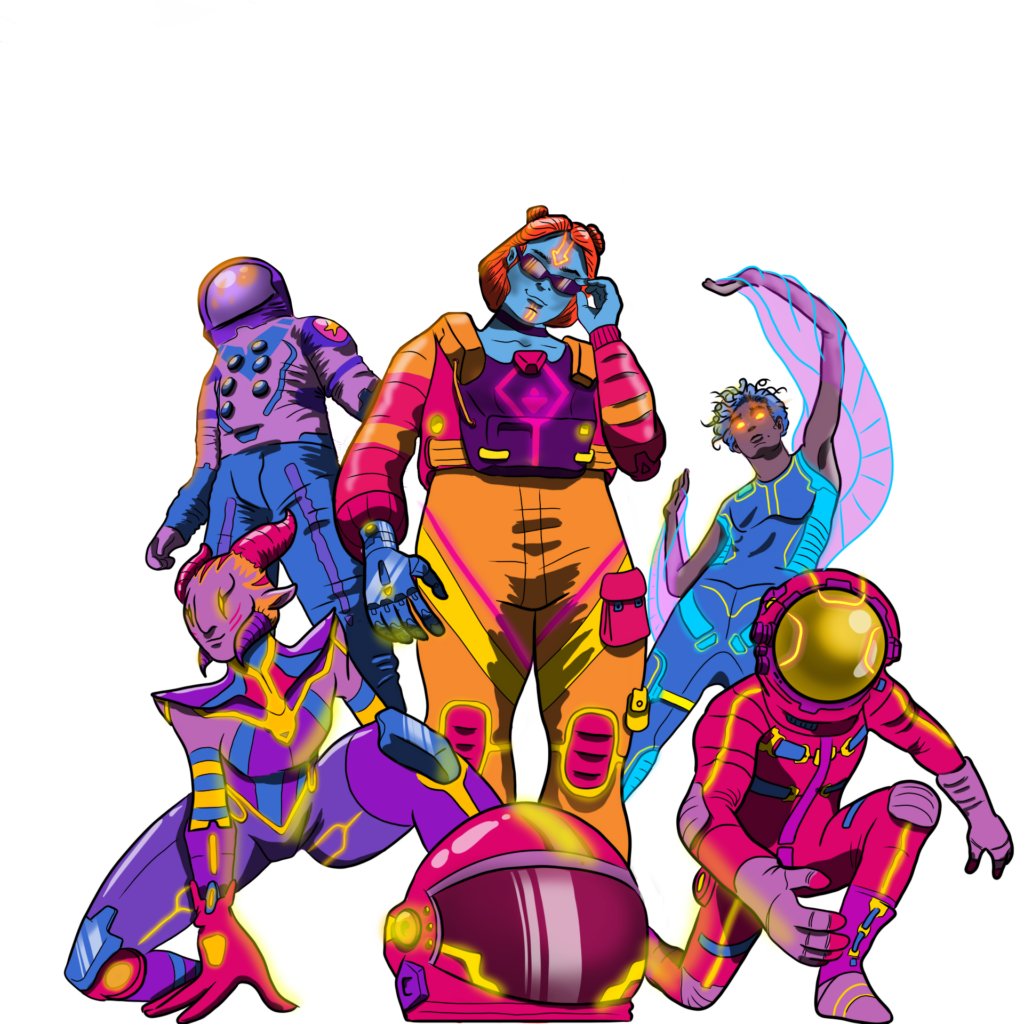As part of our “Building Resilient Multicultural Teams for the Future of Work” blog series, we thought it would be interesting to interview and share the insights of our team members who have become experts in this area. So, we reached out to two coordinators, Nicolás Oliver and Lorenzo Guatteo, and asked them to tell us about their experiences developing the Latin American Spanish and Italian teams. They generously shared details about what an average day is like, what was key in laying their team’s foundation and why you can’t trust tamarindo (read on to find out!).
How did your team create a strong identity?

NICOLÁS: A strong team identity isn’t built from one day to the next. This is a long process, which can be a bit of a rollercoaster. I think that a lot of it comes from the people that make up the team from the start. Every member needs to have the intent of being part of a team, and not be individualistic. Although everyone has their own personality, the team needs to be a single entity and not some individuals who are loosely connected.
As a leader, it is important to pay attention to each member and see if anyone doesn’t feel comfortable or integrated with the rest and take action to make them feel like they are a vital part of the team.
In the case of our LATAM Spanish team, we hit it off quickly, since our personalities play off each other and we connected both through our similarities and our differences: all of us enjoy video games, languages, and having fun; our cultural differences allowed us to learn about each other culturally; and gaming together allowed us to be friends. Playing video games as a team strengthened our relationships and assured us that every team member has our back at all times, so if one of us falls, the rest of us will be there to pick them up (literally, if we are playing Fortnite).
What tools or strategies did you use to bring everyone together, even though you’re all working online and from different parts of the globe?

LORENZO: I simply try to set an example with transparency: everyone on the team is fully informed about how I manage the workload, how I try to be as fair as possible in distributing the tasks and how I strive to make our work environment a safe space where everyone is entitled to voice their opinion. What I attempted to create, by indulging in personal conversations or simply goofing around, is a network where people working remotely feel as though they are a stone’s throw away from each other. And to be honest, I believe that our attitude as Italian people has been instrumental in reaching this goal: once we overcame the initial awkwardness that comes with meeting new acquaintances, we were able to harness the candor that distinguishes us and sidestep any trust issues.
Thanks to this laid-back attitude, every member feels like part of a group that is working toward a common professional goal. Knowing that you have a crew of real people who are ready to step in and help under any circumstances is priceless.
NICOLÁS: In our case, an unwritten strategy we have used from the beginning is constant communication. We talk *all* the time. Sometimes we don’t even talk about work. If I’m getting some food, I tell my team. If I’m struggling with something, I tell my team. If I’m not feeling well, I tell my team. This allows us to get to know each other and understand how every member functions. When do they usually take their breaks? What is the best time to arrange a meeting with everyone? Is someone always grumpy in the morning? Knowing these things (which might seem silly) can be of great help during challenging times.
As far as specific tools we use to overcome challenges, we like to get together to play games. Anything. It can be Fortnite, GeoGuessr, or any game we have.
Have you noticed any interesting cultural nuances or differences within the Spanish Latam team, and how did you leverage these to enrich the team’s identity and foster a sense of cultural appreciation?

NICOLÁS: LATAM is immensely diverse culturally, and every term we LQA is an opportunity to learn about each other’s culture and dialect. From cambúr to banana, escarbadientes to palillos (toothpicks), escondidillas to la pica (hide and seek), every word is an opportunity. Learning terminology this way is fun and exciting, because you never know if the most mundane word you can think of might be used with a completely different meaning in a different country that speaks the same language as you!
Boiling down this diversity into a cohesive product is a challenge, so the team’s ability to come together and make decisions collaboratively can make or break it and the relationships within it. It’s important to differentiate between the things that make us unique and the things that can actually go into the product we are working on. We can, and should, celebrate our cultures and their differences, but we also need to find common ground when it comes to our output as a team. This does not mean that we cannot utilize parts of our specific cultures when the context allows. If there is a Día de Muertos event, we can dive deeper into Mexican culture; if we are celebrating a specific artist from Latin America, we get the chance to learn more about the place they grew up. We’re never looking to alienate other countries but rather give the spotlight to one of the cultures that make up our community.
Can you share any fun anecdotes or memorable experiences from your journey in nurturing the team’s identity?
LORENZO: From September to October 2023, we saw a huge increase in the workload and a swift shift in the client’s expectations. Basically, our workload tripled in a matter of weeks, so we needed to reorganize our approach to the job. We redefined our priorities, reaching a solid consensus about what we should aim for in terms of quality and delivery rate. Tackling this challenge as a group, with every team member chipping in and actively contributing to redefining the way we handled our accounts, seems to have strengthened our bonds and comfort in relying on one another.

NICOLÁS: Oh, we have the tamarindo incident… So, one time we all traveled to Buenos Aires to spend a week together during Thanksgiving. We called this “Friendsgiving”. Little did we know, there was a traitor among us…
Fer, our member from Mexico, was there, so we wanted to give her the full South America experience. We got sanguchitos de miga, facturas, mate, fernet con coca, alfajores and other classic snacks and delicious things from our countries so she could try them. In a classic hivemind moment, she had the same idea of bringing us treats from Mexico so that we could try them. First, we got some classic, delicious mazapán, but then… then… the Tamarindo nation attacked. The first attack came in the form of Pelón pelo rico, which is a sour tamarind candy (which, I must admit, was not that bad). But then she gave us some spicy tamarind candy balls which almost killed us. All of us Southerners learned a lesson that day: trust no one. And also, do not mess with Mexican spices.
Can you share an example of how your team’s strong identity and culture positively impacted a project or task, leading to successful outcomes?
LORENZO: As I mentioned before, the sudden increase in the scope of our duties led us to join forces as a single entity and pull through together. Since we were short on time and had little information about the new projects, we promptly assessed how we could best address the material provided, went on to define shared strategies to cover as much content as possible, and eventually systemized how we would provide feedback to the client and vendors. Our main feat as a team during this demanding period was to design a rotation schedule that would allow different sets of testers to focus on a specific piece of content and pass the most important takeaways on to the rest of the group, so those who would sub in once the next cycle started would be fully informed.
NICOLÁS: Our team culture and identity rely heavily on always being there for each other, no matter how hard the situation. If a person is swamped, there will always be somebody there to support them. This is a team game, and if one person falls, the whole team falls.
Our individual identity also helps in these cases. Each person on our team is the best at something, and it is a leader’s role to make sure everyone is doing what they’re good at to maximize effectiveness and minimize mistakes and stress.
What role do feedback and recognition play in reinforcing the team’s identity and encouraging continuous improvement and innovation?

LORENZO: In my opinion, feedback and recognition are central to strengthening a team’s identity, but they must be shared intelligently: trivial compliments or sterile criticism alone will not translate into anything concrete. As a matter of fact, I noticed that my comments became more meaningful once, in my direct reports during our 1:1 calls or in our DM’s, I accounted for the whole process that led my teammates to a result: ranging from their initial investigation, through the plan of action they chose to follow, to the final result they achieved.
My advice would be: spend some time getting to know your peers. Remote relationships are hard to build and maintain while ensuring everyone’s well-being, regardless of their nature; therefore, I believe that professional relationships should be taken care of more attentively, as arguments and misunderstandings are always lurking around the corner and could lead to unpleasant consequences, affecting something as valuable as one’s livelihood. Dedicate some hours of your schedule to your colleagues and view them as people, rather than mere sources of achievements or hindrances.
As remote work continues to evolve and new technology appears to make it more agile, what do you envision for your team?
NICOLÁS: I like to think that, even if the tendency is to try to move quicker and quicker, we will still take the time to pause for a moment and be together as people. We are humans first, and it is human relationships that outlast any others. The identity of our team has always relied on our connections to each other and not technology. We are, of course, open to all new technological breakthroughs that can help us professionally, but, when it comes to making someone feel welcome, comfortable and like they are an invaluable part of a team, there is no technology involved. Only empathy and a human connection can help achieve that.
LORENZO: My idea is to gradually leave the operational side of things within our group, and to let the rest of the team develop their own approach to handling the products based on the systems that we established together. As the projects continue, it is safe to assume that fresh content and new products will come our way. This will require that the group shapes their own methods and finds original solutions to the roadblocks popping up along the path. My objective is to help them trim out reference browsing and streamline communication with all the parties involved in the job – by doing so, I hope to incentivize them to communicate with one another even more independently.
Lorenzo Guatteo works as an LQA Team Coordinator in collaboration with Terra Localizations. He holds a bachelor’s degree in translation and interpreting and an executive master’s degree in video game localization. Based in the northwestern Milan area in Italy, he has always been fond of foreign cultures and languages. In 2022, he began his path alongside Terra, starting as an Italian LQA Specialist, moving on to being the Point of Contact for the Italian team in 2023, and taking on the role of Italian Coordinator in January 2024.
Nicolás Oliver is a translation, localization, and LQA expert from Uruguay. He holds a bachelor of arts in scientific and technical translation from the University of Montevideo, and a master’s degree in translation, interpreting and subtitling from the University of Essex. Although his earlier translation experience centered around the medical field, he found his true passion in video games. Nicolás started working at Terra Localizations as an LQA Specialist and now serves as the Coordinator of the LATAM Spanish LQA team.
